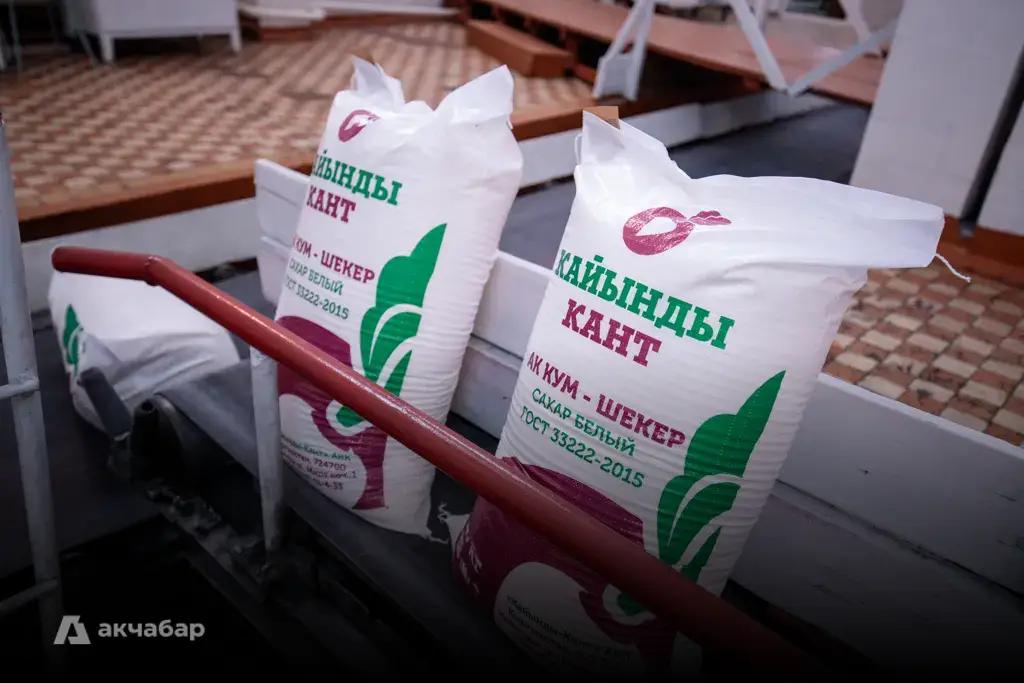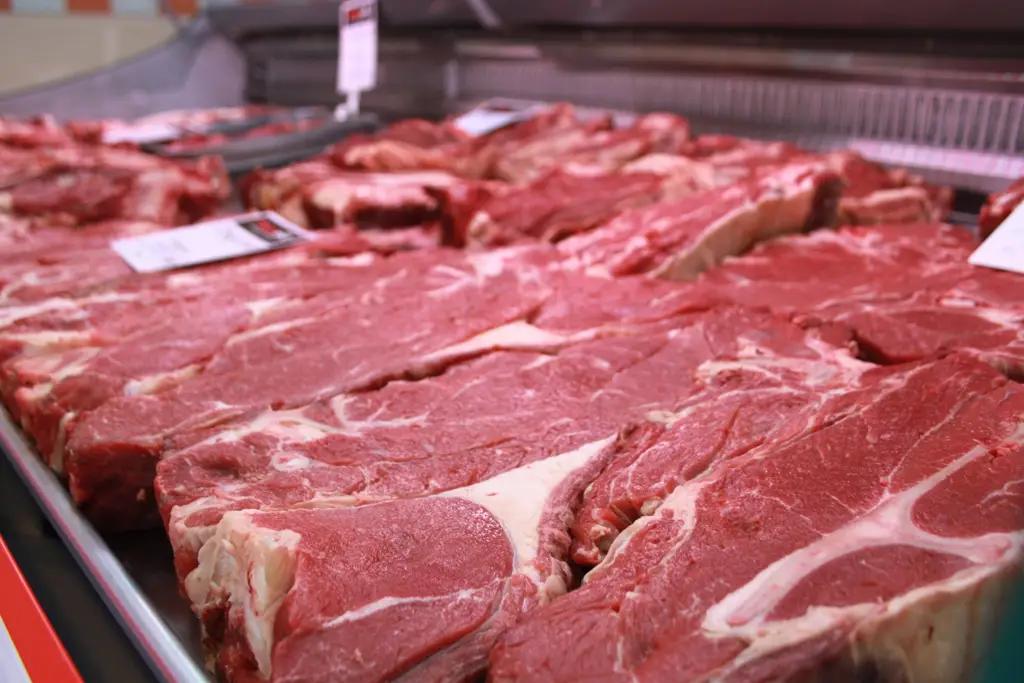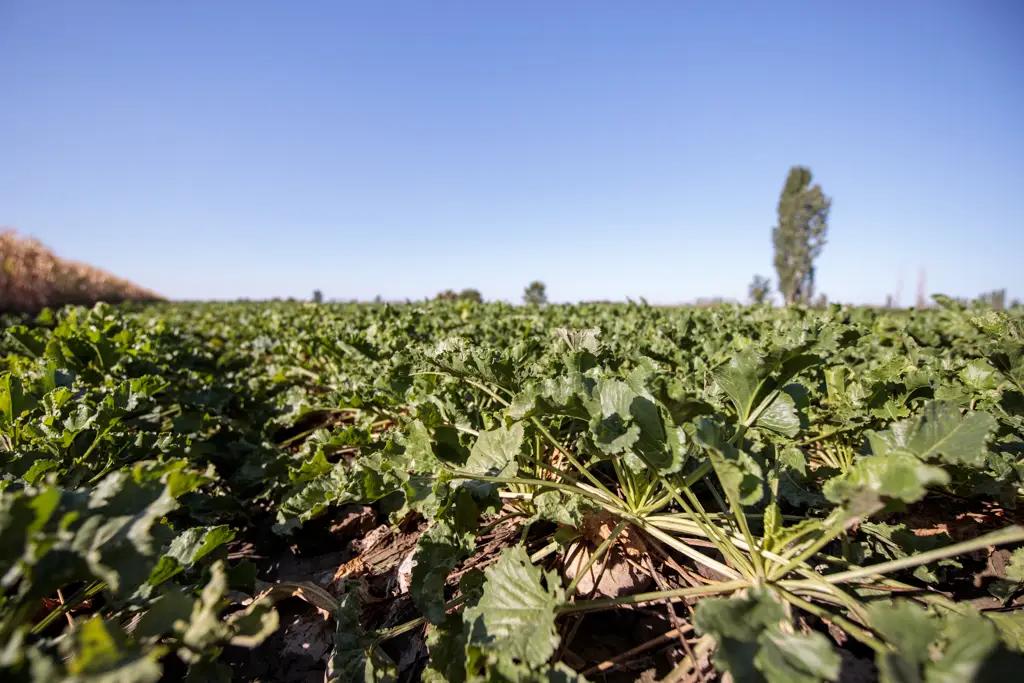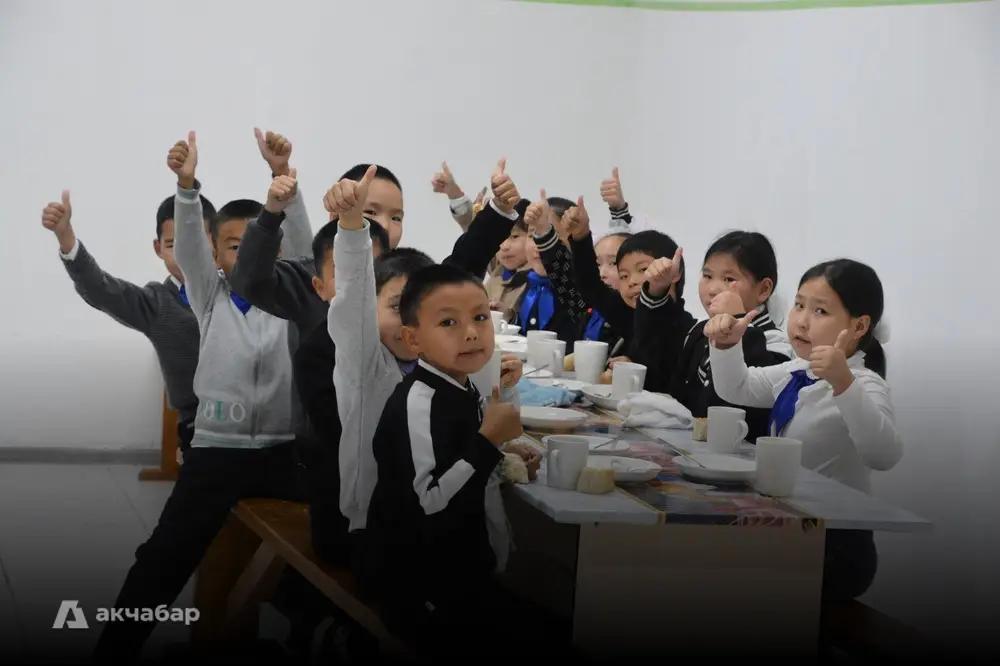
Published
10/18/2024, 19:29We can talk about the importance of hot meals in children's diets for a long time. Everyone understands that hot soup and salad are much healthier than fast food or candy, eaten during the break. Since 2006, the Kyrgyz Government has been actively implementing the National School Feeding Programme, to provide junior schoolchildren in Kyrgyz schools with a nutritious and balanced diet. This project is an important step towards improving the students' health and academic performance and creating favourable conditions for their growth and development.
SCHOOL NAMED AFTER THE FIRST TEACHER
Akchabar correspondent visited the cooks at the Samudin Moldosanov Bekitay Secondary School in Bekitay village, Zhayil district, which became a participant in the project at the beginning of this year.
In the programme's early years, funding was limited, which affected the school diet's nutritional value. The children received tea and a bun, which could not provide them with the necessary nutrients. Our government understanding the importance of a nutritious hot meal for children, adjusted the programme by developing a national policy and introducing improved school menus.
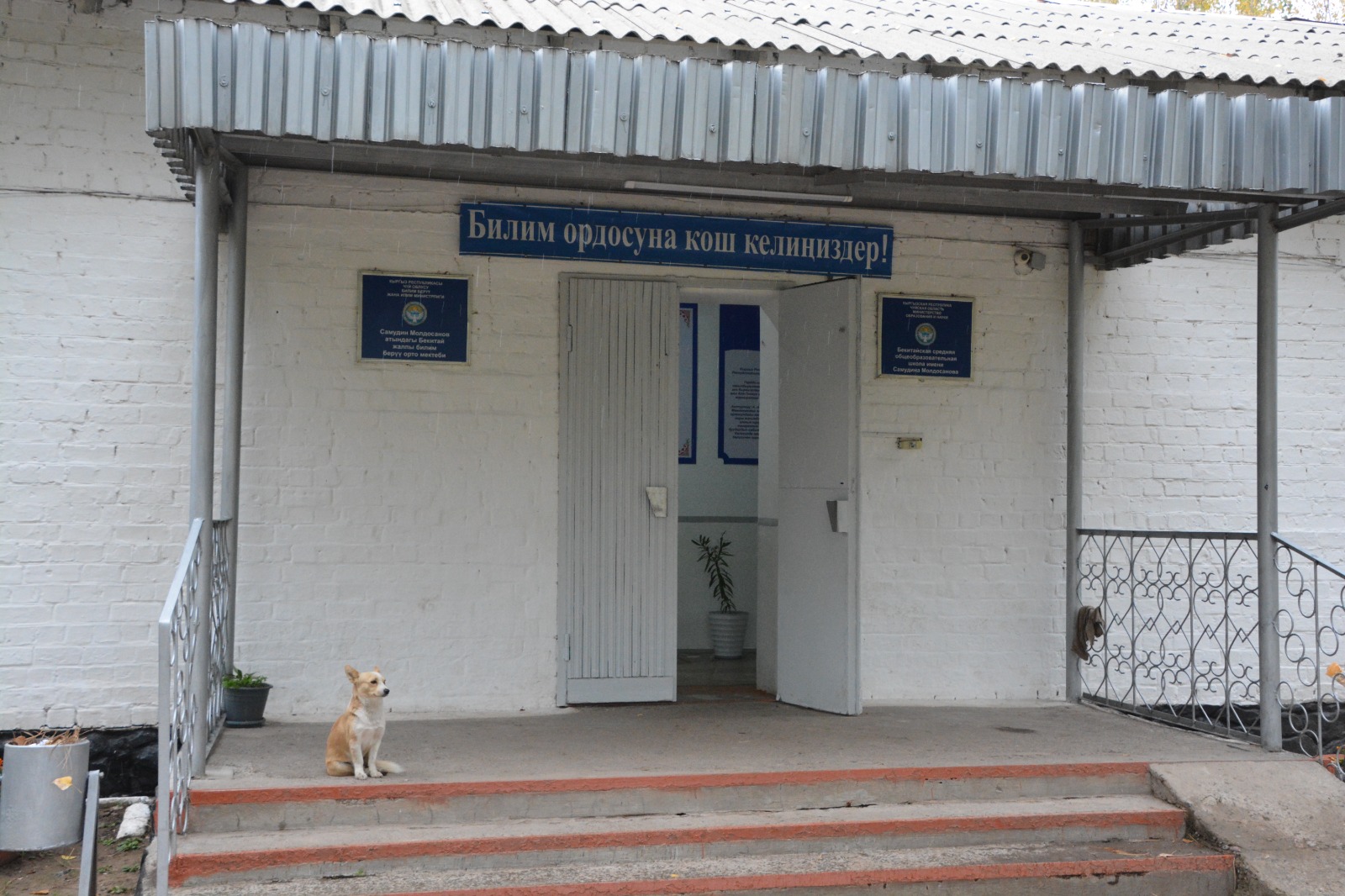
Since 2013, educational institutions have been switching to hot meals, which became possible thanks to the support of international organisations such as the United Nations World Food Programme (WFP) and local community representatives. Currently, about 900 schools are participating in the programme. Partners in the face of the McGovern-Dole International Food for Education and Child Nutrition Programme, implemented by Mersico, are also supporting the transition to hot meals in 657 schools in the country. Bekitai School is one of the schools that have received support from Mersico.
Schools that participate in the programme are not only provided with modern industrial kitchen equipment but train cooks on courses on hot meals' proper organisation too. They apply the knowledge gained in practice, each in their school.
Aitbu Jenishbek kyzy, a cook at the Bekitay village school, also took a course for school cooks at the Republican Competence Centre at the Razzakov State Technical University in Bishkek. Now she cooks soups and porridge at the school, the recipes for which were shown during the course.
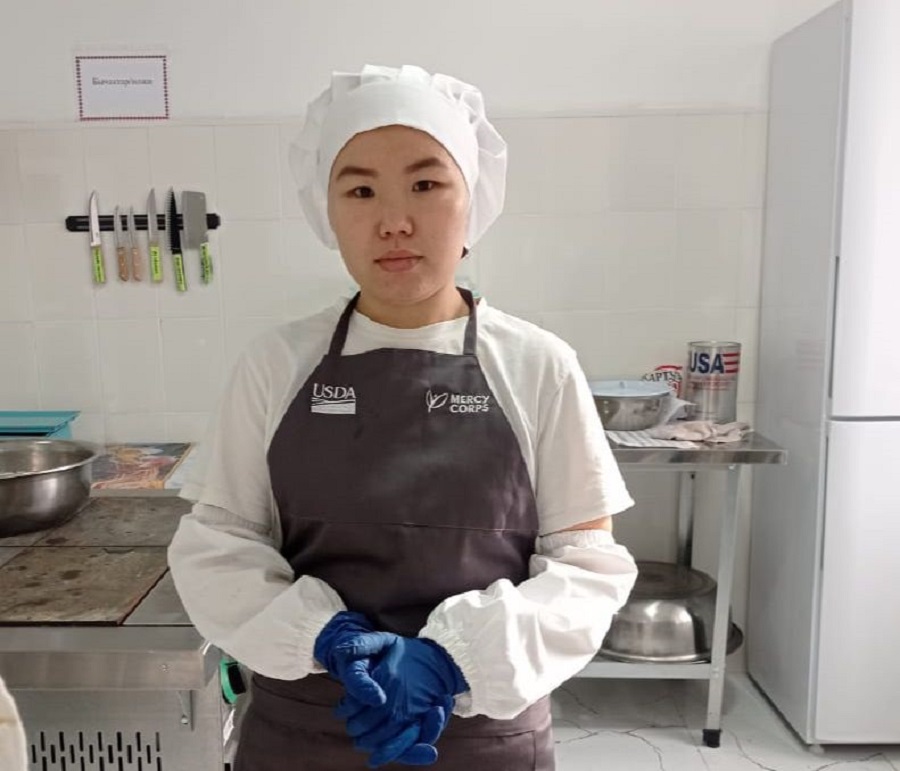
The Bekitai school is small, with only six classrooms, but the children study in two shifts. It was opened 28 years ago, and now has 172 students from 0-11th grade. There is video surveillance in the educational institution, and also the ventilation system is installed, now in winter period the classrooms are warm and cosy. On the threshold, we are met by a red dog. They say that he came running after his little master to the school, and while he is studying science, his tailed companion patiently waits for him at the entrance.
There is a monument near the school to Samudin Moldosanov, the first teacher from Bekitai village. He worked there for many years, teaching children to read and write, and now the school proudly bears his name. By the way, dedicated teachers work there, three are excellent teachers, and one is Samudin Moldosanov's daughter-in-law.
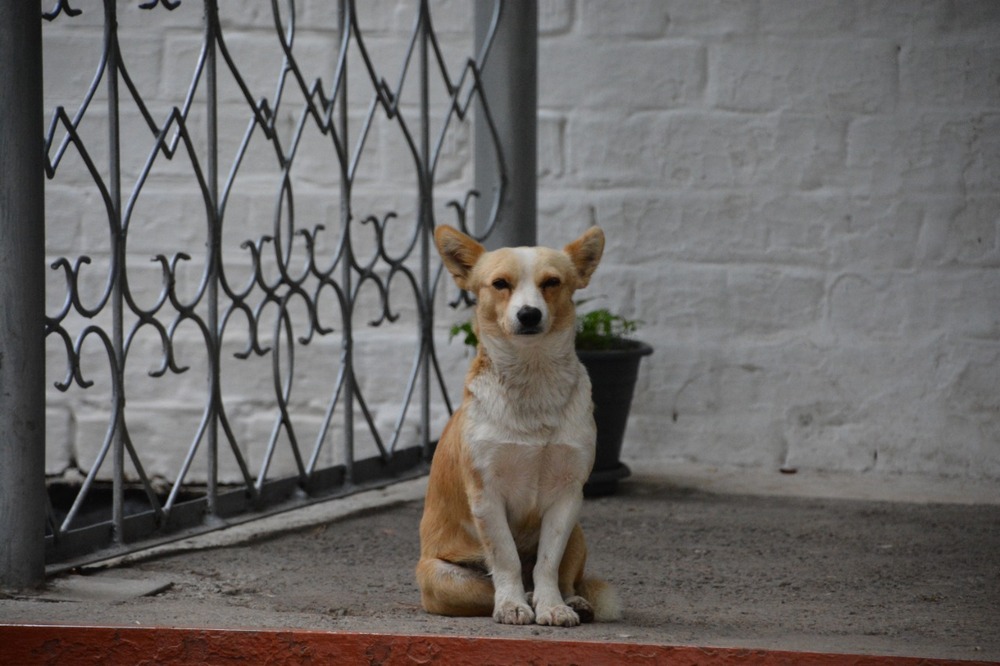
And, interestingly enough, the first teacher worked in the building where the canteen is located now. On the day of my visit, Aitbu Jenishbek kyzy was preparing rice porridge with milk, compote and bread. On that day Zarina Taalaibek kyzy came to help her. What immediately catches my eye is the kitchen is sterile and clean, the cooks are in special uniforms, I am also given a smock, shoe covers and a cap and only after that, I am let into the premises.
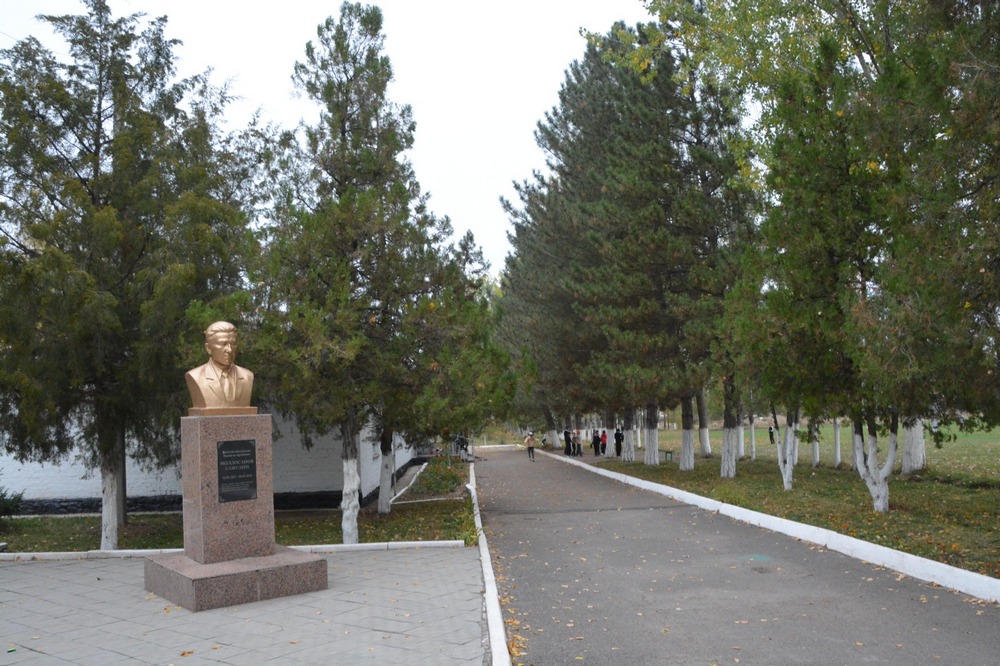
The dried fruit compote boiled in a large pot is cooling on the cooker. Aitbu is slicing bread. She bakes it every day - she comes to work at 07.00 AM to set the dough, and at 10.00 AM the first-graders, who study in the first shift, already come to eat.
A weekly menu for the month is attached to a fridge - porridge, soups, pasta, compotes and fresh bread. The menu, by the way, is approved by the district education department and sent to the school.
"We opened our canteen in January this year. It was renovated and the international non-profit organisation Mersico brought and installed the necessary equipment - oven, cutting tables, refrigerator and sinks for washing hands before meals. I was called to work at the school by our principal. To tell you the truth, at first, I was hesitant. After all, feeding children is so responsible! I used to work as a pastry chef, making desserts. But I love cooking and do it with pleasure. And in Bishkek, there were organised courses for school cooks, which I also attended. I learned a lot of new and interesting things: ingredients for dishes calculations, basics of children's nutrition, and a bulk of new recipes. I graduated with a red diploma. Now I apply my skills in my work,' Aitbu Jenishbek kyzy tells us.
Apart from equipment, Mersico also provided the school with flour, lentils and peas, which are now used to prepare meals. And the district administration brings vegetables - potatoes, carrots, onions and dried fruit.
"There are many nuances in children's nutrition, the main one is not to fry ingredients, all dishes are boiled. Such nutrition is good for health. And I think if children are accustomed to such eating habits from a young age, they will grow healthy. I used to fry everything for my children at home, but now I cook the same way as at school. My children are also students of this school and eat in the canteen, so they are already used to such food. Sometimes, of course, I spoil them with fried food, but very rarely,' the cook says.
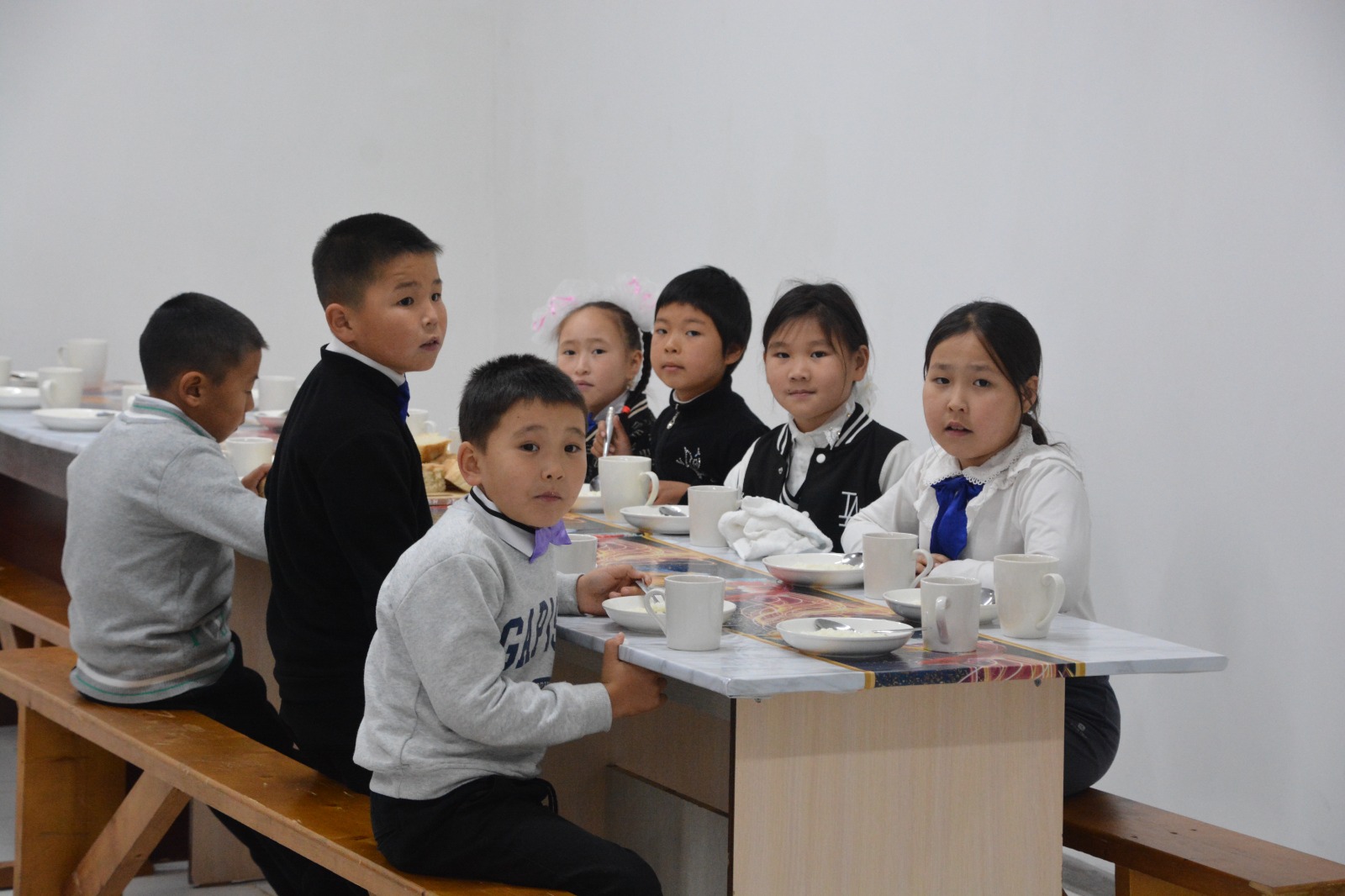
NOW THERE ARE SOUPS AND PORRIDGE FOR LUNCH
Kenzhe Emilbekova, the school's principal, told us that previously the school hadn't had hot meals, and children used to get hot tea and a bun at break time. But, of course, such a snack did not give energy and strength, and after the second lesson, children were tired, lethargic and often sent home.
She also said that since the beginning of this year, 72 primary school pupils have started to receive nutritious meals. And the management of the educational institution receives a lot of feedback from parents. Mums and dads are so happy about these innovations that they support the canteen in every possible way. They bought cups and plates for their children and hung curtains. And the cook brought potted flowers from home. Aiyl okmotu did not stay aside either, they helped with the repairs in the room, and now it is warm and cosy.
Children, currently, are active and sit at lessons with interest, which means that hot lunches also improve pupils' academic performance. The empty plates prove that the children are satisfied, some of them even ask for extra.
Kenzhe Shakenovna says that boys and girls were surprised at the unusual soups made of lentils or peas initially. They told their parents at home and asked them to make the same soup. They praised it so much that their mothers came to the school to get the recipe.
Zarina Taalaibek kyzy, who helped in the kitchen that day, has children who are also students at this school and eat in the canteen.
"In the past, children used to ask for money and run to the shop during breaks, buy various unhealthy snacks and eat dry food. But now we have delicious food here, and the children don't even ask for money. My daughter studies in the afternoon and doesn't always have time to eat before school. And children can't be forced to eat on time. I used to worry that she would be hungry until evening, but now I know they will feed her at school,’ she says.
While we are talking rice porridge is already being cooked on the hotplate - the sweet, milky aroma wafts through the air. Aitbu adds a large piece of butter to the pot of porridge - 5 grams per student. The cook writes down all the data in the brokerage journal.
Aitbu's certificate of participation in the competition among cooks from different schools of the country hangs modestly on the wall among various documents. Meanwhile, the girl took second place, competing with rivals with decades more years of experience.
"We cooked two meals from the school menu - mastava and shaulia. To tell you the truth, it was the first time I cooked shaulia. I thought I would have time to make it even better the second time. I managed to do it in time, but they deducted points for cooking it twice, and I came second,’ she recalls.
In the canteen, you can't hear the bell for the break, but the cook knows that at exactly three o'clock children will take their seats at the big table. And she hurries to set the tables and arranges plates of porridge and cups of compote. And on the threshold already appear the first students, who, having washed their hands and taken their place, in a matter of seconds gobble up the treats. Indeed, all the plates remain empty after lunch.
By the way, an interesting fact: at the end of each day the cook leaves a small portion of cooked dishes fed to the children, and a piece of bread and compote in small jars in the refrigerator, where they are stored for several days. In the case of poisoning, these samples are evidence the children were fed good quality food at school. Fortunately, we did not have to prove it.
CORRECT EATING HABITS ARE BEING SHAPED FROM CHILDHOOD
The importance of a balanced hot meal for children is confirmed by Marina Duyshenkulova - a nutritionist at the Republican Centre for Health Promotion and Mass Communication under the Ministry of Health.
"Indeed, the formation of proper habits exactly from childhood is very important, because it plays a key role in the child's future health. It is in childhood the foundations of eating behaviour are laid, and these eating habits remain for life. It is important to realise that schoolchildren are in an active growth stage and their diet should be enriched with all the necessary nutrients such as proteins, vitamins and minerals,’ she says.
Marina Kasymbayevna also believes that hot balanced meals are of special importance in children's lives. Firstly, it promotes better absorption of nutrients; secondly, hot food helps to maintain normal work of the gastrointestinal tract, which is extremely important for the growing organism of schoolchildren. In school years, children spend a lot of time in classes and extracurricular activities, which requires great energy consumption. Properly balanced and healthy nutrition gives full coverage of these costs. And it is the right nutrition helps not only to save energy, but also improves concentration, memory, and cognitive ability. That is, it gives our body to cope with physical and mental stresses. In addition, regular hot meals reduce the risk of developing diseases such as obesity, diabetes and cardiovascular diseases in the future.
